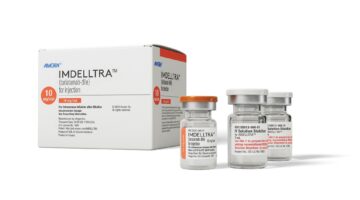The Happy Hospitalist is a board certified internist who works in the hospital and writes regularly on several blogs, including The Happy Hospitalist.
More from The Happy Hospitalist
That’s the conclusion of two psychology and political science professors as discussed at Slate.
As I’ve written many times before, I am a fan of bundling payment models of care.
I am a fan of paying doctors to take care of illness in the best possible way they know how.
I am a fan of paying doctors and hospitals a reward for reducing the complications of their care and reducing the complications of the illness.
I am not a fan of the government telling doctors and hospitals how they should do it. This type of micromanagement does nothing but set up a system of false incentives that these authors talk about.
The authors seem to worry that bundled care would create an incentive for less care and eventually worse care.

BioLabs Pegasus Park Cultivates Life Science Ecosystem
Gabby Everett, the site director for BioLabs Pegasus Park, offered a tour of the space and shared some examples of why early-stage life science companies should choose North Texas.
They write: “By the same principle, incentivizing doing less can induce doctors to practice good medicine rather than expensive medicine. But you can be sure that over time, good medicine will morph into cheap medicine. And our objective in reforming health care should be neither more medicine nor less medicine, but better medicine.”
I disagree with the assertion that less care will eventually lead to worse care. Worse care will increase complications and therefor reduce the profit potential of doctors and hospitals who must pay, out of their own pocket the care associated with those complications. The incentive not to provide worse care, is again, money driven.
I believe we can do so much better as physicians and hospitals in the care of our patients. If we got rid of coding requirements of Evaluation and Management , I could double or triple the number of patients I see. If we could reduce the bloated cost structures of hospitals and doctors offices everywhere, they could operate on smaller budgets and generate more profit with less revenue. That’s all possible when you take away the regulations that allow doctors and hospitals to take care of patients, when their profit is determined by their skin in the game.
The authors come to the conclusion that great medical care should be its own reward.
It is tempting, in light of our argument, to ask how can we incentivize good medical practice, so that we get more of it. Our answer is simple but perhaps unsatisfying: Good medical practice should be, and can be, its own reward. Almost all doctors want to practice good medicine—at least before they get socialized by the grind of medical school, residency, student debt, malpractice premiums, and the like.
Unfortunately, for these authors, the same could be said of every profession. But nobody gets paid with smiley faces and warm snuggies. You can’t separate money from medicine. The incentive to provide good care SHOULD be money. We just have to figure out a way to to separate the good money from the bad. And you can do that by separating the good doctors, from the bad and pretend doctors. And that’s done with bundling.














